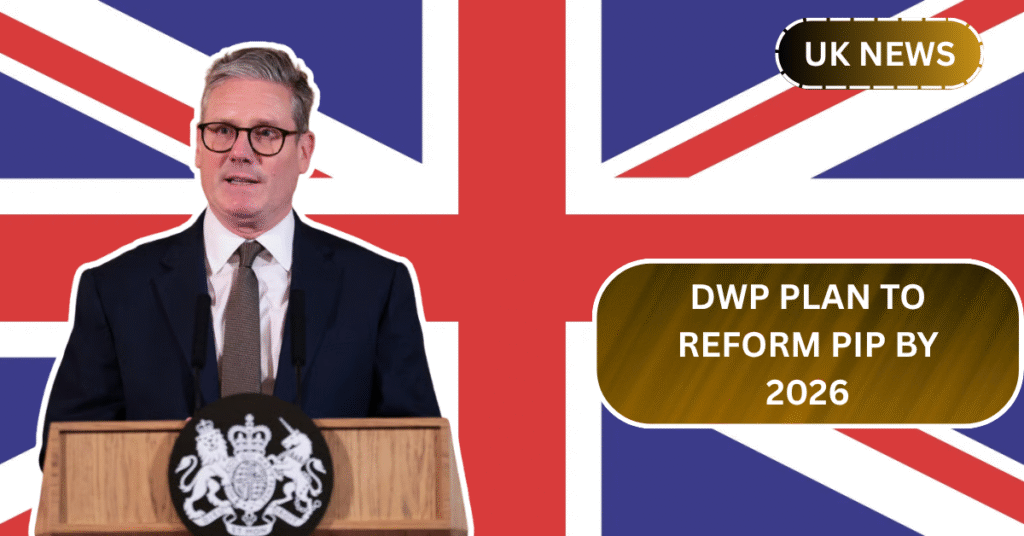Personal Independence Payment (PIP) is a type of benefit in the UK that helps people living with long-term disabilities or health conditions. It is mainly given to those who have difficulty moving around or completing daily tasks. This payment helps cover the extra costs of living with a disability.
Currently, PIP is claimed by millions of people across England, Scotland, and Wales. But now, the UK government is planning to change how this payment works — and the changes are expected to come into effect by 2026.
Why Is the Government Planning to Change PIP?
This Article Includes
The Department for Work and Pensions (DWP) says the current system isn’t working as expected. They’ve raised a few concerns:
- The number of PIP claimants has increased rapidly in recent years.
- Mental health-related claims are growing, and these are often harder to assess fairly.
- A lot of money is being spent, but the system isn’t always targeting the people who need the most help.
To address these issues, the government released a green paper titled “Modernising Support” and opened a consultation that ends on 22 July 2024. This consultation is asking for opinions on how PIP should be delivered in the future
Key PIP Changes Being Proposed
Here are some of the biggest reforms under discussion:
1. Scrapping Cash Payments for Some
Instead of giving regular cash payments, the government is considering offering vouchers or direct support. This could include providing access to services like therapy or equipment rather than money.
2. Focusing on “More Severe” Disabilities
PIP could become more targeted, focusing only on people with serious physical or long-term conditions. This means people with short-term or less visible conditions (like anxiety or depression) might not be eligible under the new system.
3. Replacing PIP with a New Benefit
One major proposal is to completely replace PIP with a brand-new system that works differently. This could involve new eligibility criteria, fewer assessments, or even a different way to support mental health claimants.
4. End of Face-to-Face Assessments
Many claimants have faced anxiety and stress due to face-to-face assessments. The government may explore virtual assessments, or even remove assessments completely for people with lifelong conditions.
What Does This Mean for Current PIP Claimants?
If you are already receiving PIP, don’t panic. Nothing will change immediately.
These proposals are part of a consultation process, which means they’re still in the planning stage. Once the government collects feedback and finalizes its decisions, changes will be slowly introduced, likely starting in 2026.
However, depending on your health condition or the kind of support you receive, these changes could affect you in the future — especially if:
- You’re receiving PIP for mental health-related conditions
- Your condition is considered mild or temporary
- You’re expecting to apply for PIP in the coming years
Why This Reform Is Getting Mixed Reactions
Many disability campaigners and charities are worried about these proposals. They say:
- Removing cash payments could reduce independence for disabled people.
- People with mental health conditions may be unfairly excluded.
- Vouchers or direct services may not meet everyone’s individual needs.
On the other hand, some groups welcome the idea of more targeted and long-term support, especially if it reduces unnecessary assessments and helps those with serious conditions more effectively.
What Happens Next?
Right now, the government is gathering public opinions through its consultation. You can respond online, by post, or by email if you want to share your thoughts. After 22 July 2024, the government will analyze the feedback and publish a report later this year or early next year.
If any of the proposals are accepted, they will likely be implemented from early 2026 onwards.
Final Words – Stay Informed and Be Prepared
Whether you’re currently receiving PIP or planning to apply, it’s important to stay informed. These reforms could impact how support is provided for years to come. The best thing to do is:
- Follow official DWP updates
- Respond to the consultation if you have feedback
- Speak to an adviser if you’re unsure about how future changes may affect you
These reforms aim to modernize support, but the final shape of the changes will depend heavily on public response — so make your voice heard if you care about this issue.




